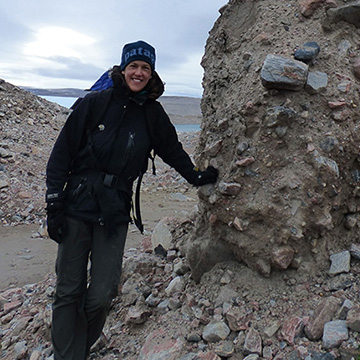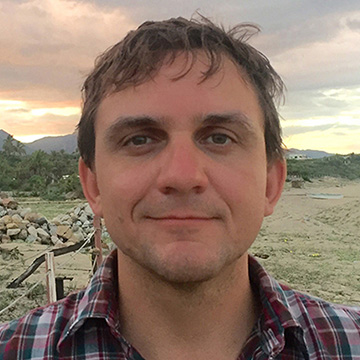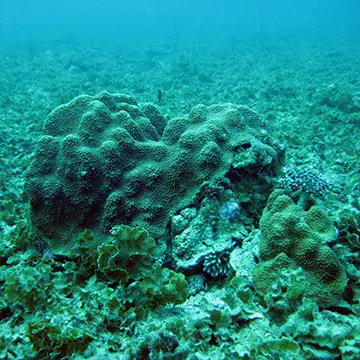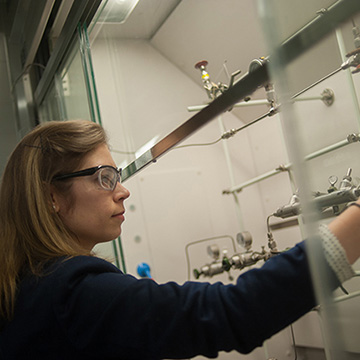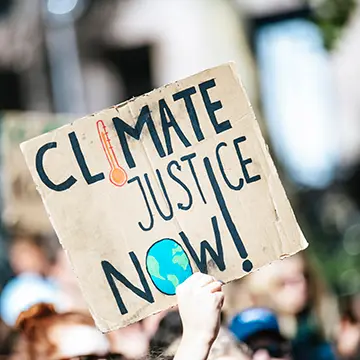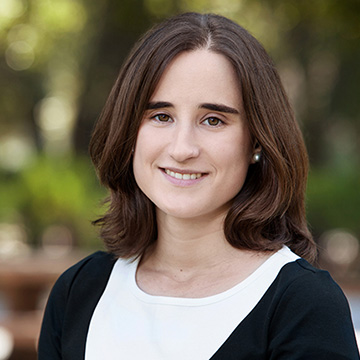Research
Areas of Focus - Ubben Program for Climate and Carbon Science
The Paula M. Trienens Institute for Sustainability and Energy is committed to fostering collaborative research within and among disciplines across the university. The Ubben Program for Climate and Carbon Science takes an integrated approach, leveraging expertise from across Northwestern to address some of the most pressing issues facing our planet.Objective 1: Improve the mechanisms for understanding and predicting climate system dynamics under progressive anthropogenic forcing
Program research will uniquely contribute to the development of new climate models that provide entirely new, region-specific climate information. This type of research is increasingly critical for developing effective public policy and market responses. These include improved risk management tools, public health planning, and scalable investment mechanisms to support low-carbon technology and global climate change adaptation/mitigation solutions. Examples of work in this area include:
Yarrow Axford of the Department of Earth and Planetary Sciences is analyzing environmental impacts of past warming events and the feedback processes regulated by the carbon cycle to better understand what future climate change may bring. Her research involves reconstructing past climate records of the Greenland Ice Sheet - the second largest body of ice in the world that has shown rapid melt in recent decades and could threaten coastal communities around the world as melting continues.
Daniel Horton of the Department of Earth and Planetary Sciences is exploring the efficacy of new tech, green infrastructure, and sustainability measures as means of mitigating and adapting to human-caused climate change. By developing climate model simulations pertinent to public policy, community needs, and public health his work focuses on building a better understanding of how humans can alter the Earth system.
Benjamin Linzmeier in the Department of Earth and Planetary Sciences studies ocean acidification - a change in ocean pH levels resulting from increased absorption of carbon dioxide into marine waters when atmospheric levels increase. Working with faculty members Matthew Hurtgen, Andrew Jacobson, and Brad Sageman, he has developed a geochemical record of acidification spanning the Cretaceous-Tertiary boundary (the major extinction event that killed the dinosaurs) by measuring variations in calcium isotope ratios of well-preserved marine fossils from Antarctica.
Objective 2: Develop new approaches for climate adaptation and mitigation, including low- and zero-carbon energy solutions that avoid—and even capture and recycle—greenhouse gases like carbon dioxide
Program research will support the discovery of chemical processes, materials, and technologies that convert carbon dioxide into a usable resource such fuels or the building blocks of high-value materials using renewable energy. The Program will also analyze and bolster the potential economic viability of these process technologies to carve a clear path to successful, long-term deployment. Examples of work in this area include:
The Center for Catalysis and Surface Science (CCSS) is a Trienens Institute research center that promotes interdisciplinary research fundamental to the discovery and atomistically-controlled synthesis of catalysts that optimize the sustainability of industrial and consumer goods. The Center's primary research activities involve characterizing active sites on solid surfaces and of reaction intermediates, studying the interaction of metals with oxides, improving selectivity of advanced oxidation catalysis, and developing environmental catalysis directed toward destruction of gaseous pollutants.
Objective 3: Analyze and implement effective public policy and business solutions concerning climate and carbon
Program research will help inform new strategies for addressing the environmental, social, and economic realities of climate change. The Program will provide decision makers and business leaders with actionable solutions by leveraging intersectional expertise across public policy, law, and business. Examples of work in this area include:
James Druckman of the Department of Political Science has been studying public opinion on climate change to understand the hurdles and antidotes to effectively communicating information on seemingly controversial scientific topics. He seeks to answer key questions of how researchers and policymakers can help the public to better understand science and related policies.
The research of Mar Reguant in the Department of Economics deals with the economics of energy, with an emphasis on electricity and the pollution associated with electricity generation. In seeking to decouple economic growth from carbon-dependent technologies, she is exploring carbon cap-and-trade systems, renewable energy integration, carbon tax policies, and energy markets.
